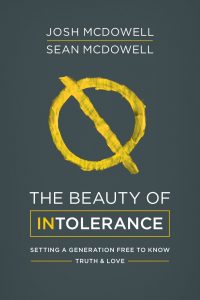The Puritans Liked Sex!

In the last two blog posts of our cultural tolerance series, we looked at why God designed sex to be part of marriage. We talked about the sacredness of sex, and the emotional, physical, and psychological damage we do to ourselves by engaging in sex outside of marriage.
But let’s back up just a bit and address a question that many Christians ask: “Is it okay for Christians to enjoy sex?”
God’s simple answer on that: “You bet!”
What is concerning, however, is that some Christians are being taught by their churches that sex is “sinful.” To view sex as “dirty” or “sinful” means that you imprison a part of yourself that God designed to be free and open.
It’s not sex itself that is to be limited, dear friend, it’s sex outside of the sacred bonds of marriage.
Wrong Doctrine
The Church’s long history includes teachings that condemned sexual desire. One of the pesky parts of our control-loving human nature is to place shame and condemnation where God did not intend.
The medieval Roman Catholic church, for example, believed that one could not have sex without sinning. The church taught that virginity was better than marriage, that sexual contact between a married couple was a “necessary evil” to continue the human race, and that passion was inherently sinful. We’ve all heard stories of monks who repeatedly whipped themselves for thinking sexual thoughts, as if their flowing blood would both adequately punish and redeem them. Though self-punishment, to us, seems to make sense, I think it makes God sad.Only God’s grace can cover our sin.
The Puritans, English Protestants who lived in the sixteenth and seventeenth centuries, were among the believers who rejected these teachings. Most of us hear the term “Puritan,” and we picture a religious person who is prudish about sex. Ironically, there was nothing prudish about the Puritans. They fully embraced the joys of sex! In fact, the Puritans believed and taught that it was a married man’s duty to provide sexual pleasure for his wife. There is at least one case on record in which a husband was excommunicated for “neglecting his wife” by not having sex with her for two years. And Puritan women in New England had the legal right to divorce their husbands if they proved impotent.
While that last bit isn’t biblical, the Bible does tells us that God designed sex to be fully enjoyed inside a heterosexual marriage. The book of Song of Solomon, for example, gives us a peek at the sexual delight a married man and his wife take in each other.
This poetic book also reminds us to view our spouse with perfect love, overlooking his or her flaws. No one is perfect, of course, but maintaining a commitment to see the best in our spouse goes a long way in overlooking the “little foxes that spoil the vineyards” (Song of Solomon 2:15) and ruin a marriage. God’s grace extends to forgiving us if we do divorce, but God hates the pain, suffering, and disruption that divorce dumps on us.
Some Modern Puritanism, Perhaps?
I wonder; might our society benefit from an injection of Puritanical thinking? For as gung-ho as the Puritans were about sex inside of marriage, they were hostile to sex outside of it. Forget about pre-marital sex or marital affairs. They recognized both as destructive to individual and societal health.
History may have labeled Puritans as “fuddy-duddies” who had no fun, but the Puritans got this right: the goal of Christ-followers should be to primarily seek the pleasure of pleasing God. The Puritans understood that the more we seek to live a life in tune with God’s heart, the less we will want to sin with our own.
As society was significantly decadent during the time of the Puritans, they understood all too well the draw of sexual temptation. John Flavel, a Puritan pastor who lived in the 1600s, wrote, “Most of those souls that are now in hell, are there upon the account of their indulgence to the flesh; they could not deny the flesh, and now are denied by God.”
Thanks to our modern society’s love affair with cultural tolerance, many Christians tend to view God as a benevolent teddy bear. Our sin isn’t that bad, right, because isn’t God in the business of forgiveness? Most of us ignore what we know deep within our soul: we should approach God with awe and trembling because He is holy. It is only because of Christ’s atonement that He can even look at us. We are forgiven because of the huge cost Christ paid to redeem us.
As theologian R.C. Sproul writes in his book, The Holiness of God, “God’s grace is not infinite. God is infinite, and God is gracious. We experience the grace of an infinite God, but grace is not infinite. God sets limits to His patience and forbearance. He warns us over and over again that some day the ax will fall and His judgment will be poured out.”
Yes, God love us fiercely. Yes, He gives us free will to make lifestyle choices. But those choices come with a price. Will you let your sexual conduct be an area that causes you shame when you stand before Him? Society may view sex as “no big deal,” but to God it is. Every part of us is a big deal, actually, which is why God continues to woo each of us to submit our heart, mind, and body fully to Him.
Sin Doesn’t Birth Happiness
As Sproul writes, “My sins have not brought me happiness. But my sins have brought me pleasure. I like pleasure. I’m still very attracted to pleasure. Pleasure can be great fun. And not all pleasures are sins. There is much pleasure to be found in righteousness. But the difference is still there. Sin can be pleasurable, but it can never bring happiness.” He adds, “It seems utterly stupid for a person to do something he knows will rob him of his happiness. Yet we do it. They mystery of sin is not only that it is wicked and destructive but also that it is so downright stupid.”
It’s a struggle, isn’t it, to stop being stupid? Because our choices feel so right in the moment.
We want to feel loved, content, liked, even powerful. Sometimes we make choices simply because we’re trying to fill the hole in ourselves that we should be filling with God. It feels just so much easier to grab a burger and a beer, sometimes, than it is to hunger after God. It feels so much easier, sometimes, to take comfort in the arms of a lover, than it does to find comfort in a God we can neither see nor hear.
The problem with following our feelings is that they so easily lead us to sin. We must be diligent in committing to following God’s moral teachings, especially in the area of sex. Its pull to pleasure is simply too strong to not take mastery over it.
So, back to my earlier question: “Is it okay for Christians to enjoy sex?” In the words of the Puritans, married couples can dive into sex “willingly, readily, and cheerfully.” There’s nothing “dirty” or “sinful” about that! Marriage, of course, is so much more than a sexual union. But it is only within marriage that sex can fully be fun and wholesome. No baggage from past lovers. No insecurities. No sexually transmitted diseases. Just two blank slates who get to come together to become one flesh.
I bet the Puritans would laugh at how modern society views them. You can laugh, too, if someone ever labels you a “Puritan.” What they likely mean as an insult, is a supreme compliment!
Thought to Ponder
This week, give serious thought to your views on sex. On the one hand, you have society telling you that sex outside of marriage is fine. Heck, it asserts, even affairs are fine, if you’re feeling bored or unappreciated. On the other hand, you have God’s word telling you to live a life that honors Him. R.C. Sprout says sin can make us feel pleasure, but it doesn’t bring us happiness. Do you agree? It’s tough to put our selfish desires ahead of what God wants, but when we do, He blesses us. Will you commit to knowing, loving, and following God’s ways? Can God count on you to live for Him?
 This blog post has been adapted from the book The Beauty of Intolerance, by Josh and Sean McDowell. To purchase a copy of this and other helpful resources, please visit our Store page.
This blog post has been adapted from the book The Beauty of Intolerance, by Josh and Sean McDowell. To purchase a copy of this and other helpful resources, please visit our Store page.



